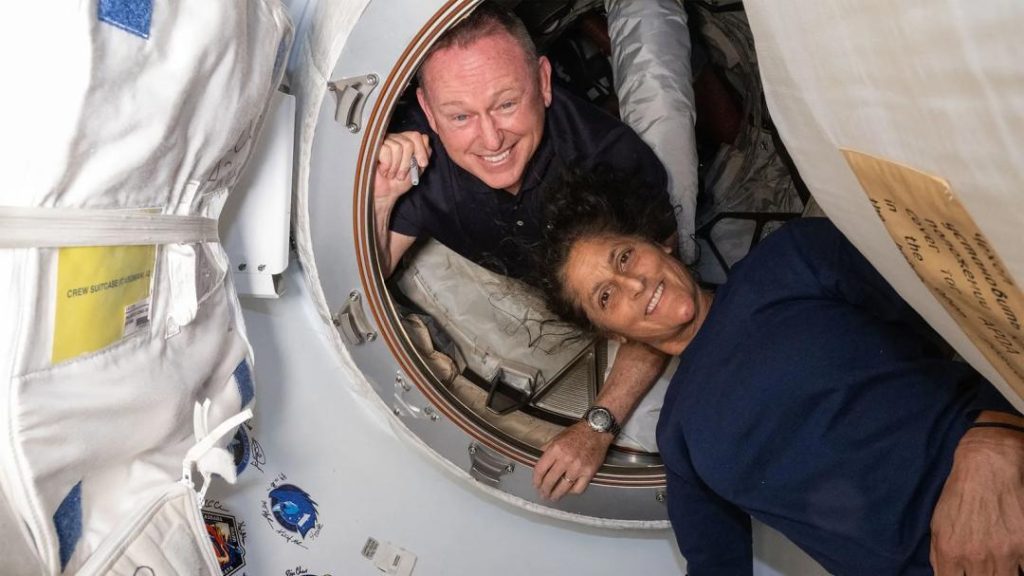
What challenges will Sunita Williams & Butch Wilmore face after returning to Earth?
As two American astronauts, Sunita Williams and Butch Wilmore, prepare to return to Earth after spending months in space, they may face a series of challenges that will make their transition back to life on our planet a bit more complicated. According to recent reports, these challenges could include a loss of bone density, dizziness, nausea, and even fainting.
Williams, a NASA astronaut, has been living on the International Space Station (ISS) for nearly seven months, while Wilmore, an astronaut with NASA’s Johnson Space Center, has been on the space station for about five months. As they prepare to return to Earth, they will have to contend with the effects of prolonged space travel on their bodies.
One of the most significant challenges they will face is the loss of bone density. In space, the lack of gravity causes the body to lose bone mass, which can lead to a condition known as osteoporosis. This can be particularly problematic for astronauts, as they need to maintain strong bones to perform their duties in space.
To counter this loss, astronauts like Williams and Wilmore will have to engage in regular exercise routines to strengthen their bones. This may involve resistance training, cardiovascular exercises, and other activities that help to stimulate bone growth.
Another challenge they will face is the development of “baby feet.” This is a condition that occurs when the body adapts to the microgravity environment by relaxing the muscles in the feet. As a result, the feet can become soft and swollen, making it difficult for astronauts to walk properly. This condition is often referred to as “space feet,” and it can take several weeks for the feet to return to their normal shape and function.
In addition to these physical challenges, Williams and Wilmore may also experience other symptoms after returning to Earth. For example, they may feel dizzy and nauseous due to changes in their blood volume. In space, the body’s blood volume decreases due to the lack of gravity, which can cause dizziness and lightheadedness. When they return to Earth, their blood volume will return to normal, which can cause a range of symptoms, including headaches, nausea, and fatigue.
Fainting is also a possibility after returning to Earth. In space, the body’s blood pressure is lower due to the lack of gravity, which can cause blood to pool in the legs and feet. When an astronaut returns to Earth, the sudden change in blood pressure can cause a range of symptoms, including dizziness, lightheadedness, and even fainting.
To mitigate these challenges, astronauts like Williams and Wilmore will have to undergo a series of tests and assessments to monitor their health and well-being. They will also have to engage in regular exercise routines and follow a healthy diet to help their bodies adjust to life on Earth.
In conclusion, Sunita Williams and Butch Wilmore will face a range of challenges after returning to Earth from their space mission. These challenges will include the loss of bone density, the development of “baby feet,” dizziness, nausea, and even fainting. However, by engaging in regular exercise routines and following a healthy diet, they will be able to overcome these challenges and return to their normal lives on Earth.
Source:






